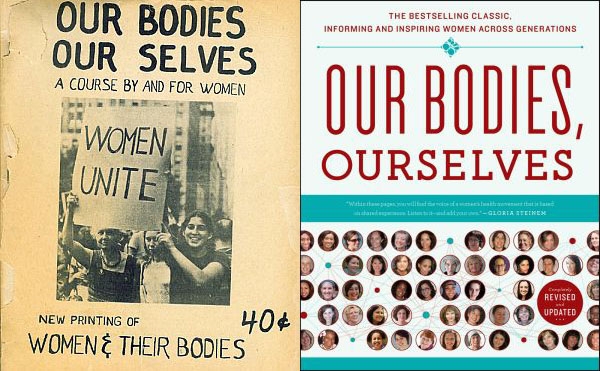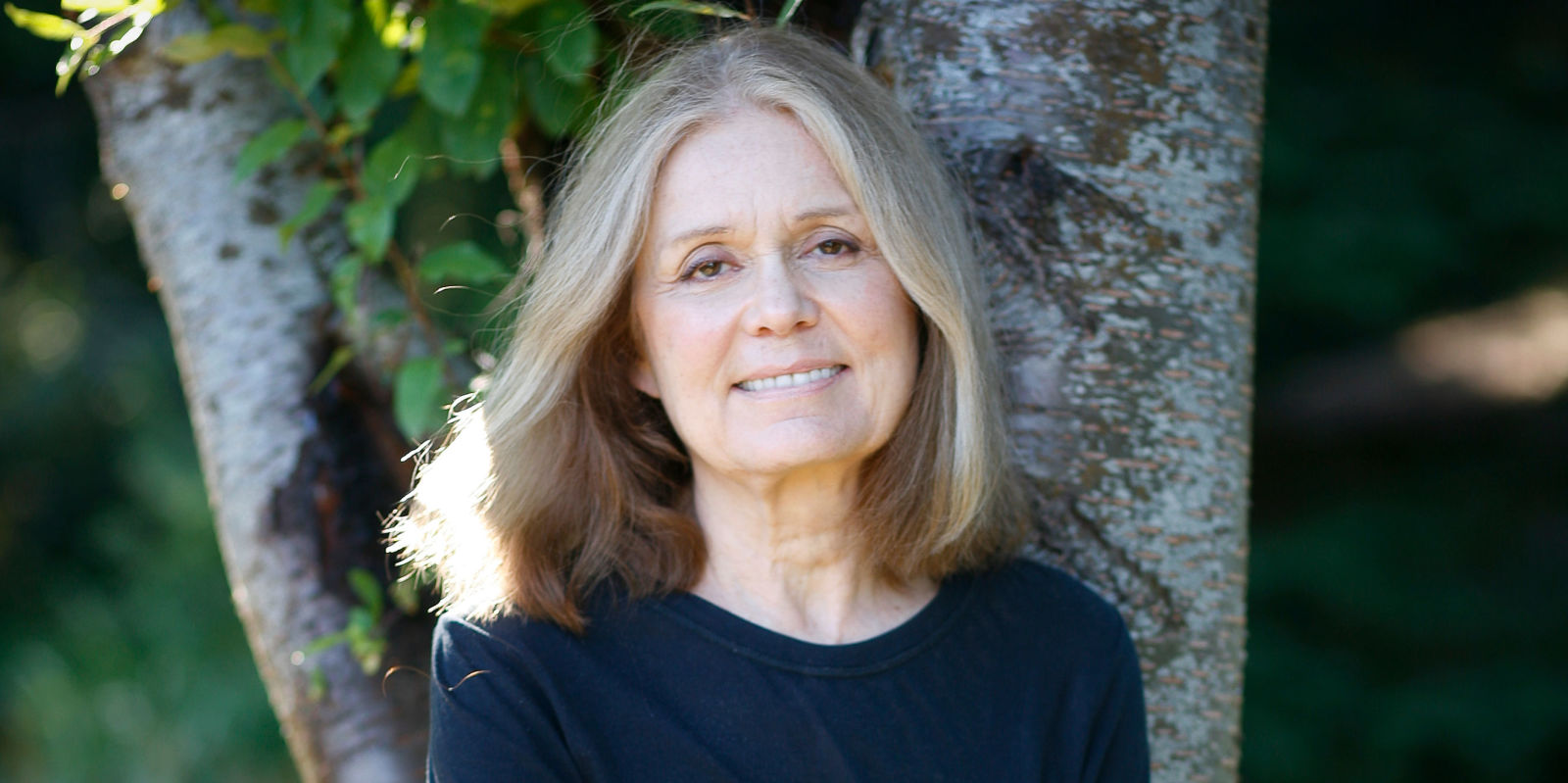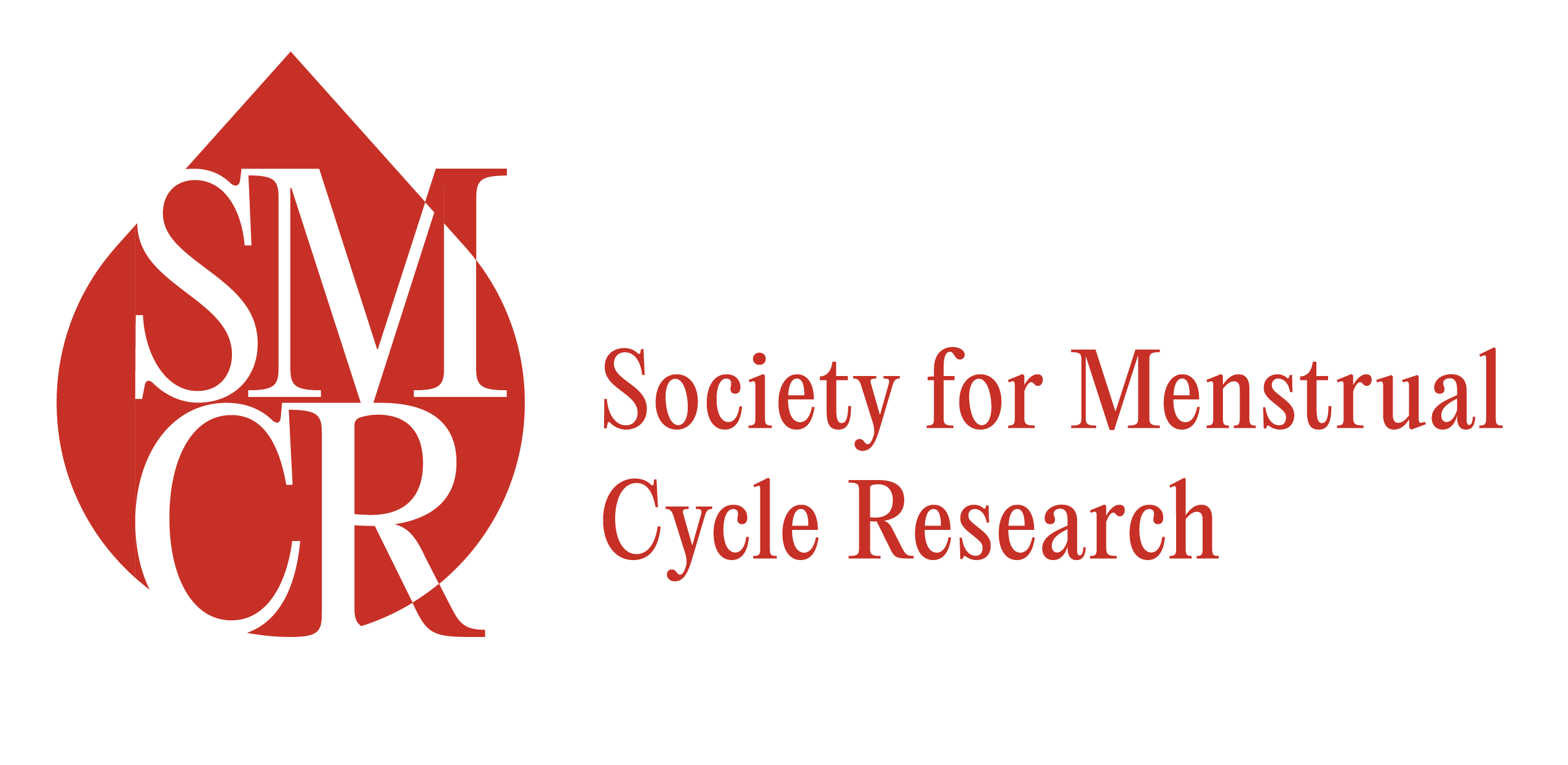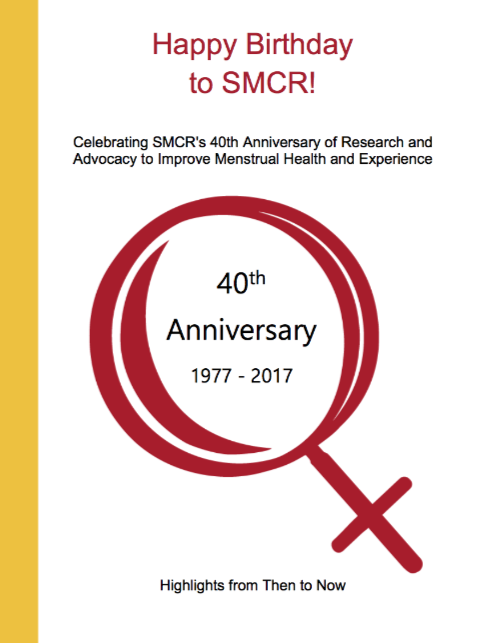- to inform public policy for the enhancement of women’s health.
- to identify research priorities, to recommend research strategies, and to promote interdisciplinary woman-centered and gender-sensitive research on the menstrual cycle.
- to generate and exchange information and to promote public discussion of issues related to the menstrual cycle.
- to examine the practical, ethical and policy issues surrounding menstrual cycle research.
- to provide a formal communication network to facilitate interdisciplinary dialogue about menstrual cycle events in the context of women’s health over the life span.

As director of the Tremin Trust, one of the largest longitudinal collections of data on women’s health, Dr. Voda and her colleagues explored the natural history of women’s menstrual cycles and their menopause transitions. In 1997, Ann published Menopause, Me and You: The Sound of Women Pausing. Dr. Voda’s body of work is both foundational and catalytic, inspiring future research on the topic.
This award recognizes an outstanding lifetime contribution to menstrual cycle research.
2023: Jane Ussher, PhD
Jane M Ussher, PhD is a critical health psychologist whose research focuses on embodied subjectivity in relation to the reproductive cycle and sexuality. As a trained clinical psychologist, she has contributed to the integration of research and clinical practice in gendered health, through development of psycho-educational interventions to address
premenstrual distress, sexual concerns following cancer, and LGBTQI cancer survivorship. She is editor of the Routledge Women and Psychology book series, and the SMCR journal Women’s Reproductive Health, and was President of the Australian Society for Psychosocial
Obstetrics and Gynaecology (2017-2020), President of the Society for Menstrual Cycle Research (2019-2021), and is an elected Fellow of the British Psychological Society. She is author of 13 books, including ‘The Psychology of the Female Body’ (Routledge), ‘Fantasies of Femininity: reframing the Boundaries of Sex’ (Penguin), ‘Managing the Monstrous Feminine’ (Routledge), and ‘The Madness of Women: Myth and Experience’ (Routledge). She is co-editor of The Routledge Handbook of Women’s Sexual and Reproductive Health (Routledge), with Janette Perz and Joan Chrisler.
2023: Janette Perz, PhD
Janette Perz, PhD, is Professor of Health Psychology and Director of the Translational Health Research Institute (THRI) at Western Sydney University, Australia. She is co-editor of The Routledge Handbook of Women’s Sexual and Reproductive Health (Routledge, 2019), with Jane Ussher and Joan Chrisler. She has undertaken a significant research program in sexual and reproductive health, with co-investigator Jane Ussher on Australian Research Council funded projects examining premenstrual syndrome (PMS) in heterosexual and lesbian relationships; couple-based psychological interventions for PMS; changes to sexuality and fertility after cancer; sexual wellbeing and reproductive needs in migrant and refugee populations; sexual and psychological wellbeing during menopause and midlife; and LGBTQI
cancer survivorship and care. She has also undertaken research in mental health, including cognitive-behavioural interventions for disadvantaged groups; Interventions for post-partum depression; and gender and therapy referrals in general practice.
2017: Nancy Reame, B.S.N., M.S.N., Ph.D., FAAN
Nancy Reame, PhD, is a nurse-physiologist and women’s health activist who has contributed to our understanding of the neuroregulation of the menstrual cycle and menopause and
factors affecting period product safety. In the 1980’s she directed the laboratory studies of tampon absorbency for the consumer members of the FDA Advisory Task Force on Tampon Safety, which set the absorbency guidelines for all US products that remain in place today.
Working closely with Our Bodies, Ourselves (formerly the Boston Women’s Health Book Collective), she demonstrated that tampons absorb significantly more blood than salt water, the standard test fluid used by the FDA. For many early editions of the iconic book, Our Bodies, Ourselves she served as co-author on the menstrual cycle/fertility chapters. She is past President of the Society for Menstrual Cycle Research, and an elected fellow of the American Academy of Nursing, the American Association for the Advancement of Science, and the National Academy of Sciences (formerly Institute of Medicine).
2013: Phyllis Mansfield, PhD
Dr. Mansfield has been a long time member of SMCR, having served on the Board for many years. In addition, she has served as conference coordinator and also as a co-editor of several special issues of journals (e.g., Women & Health, Health Care for Women International, and Women’s Health Issues), which provided wider access to SMCR members’ research.
2011: Jerilynn Prior, MD
Dr. Prior is author of many scientific articles as well as Estrogen’s Storm Season: Stories of Perimenopause and co-author of both The Estrogen Errors: Why Progesterone is Better for Women’s Health and Transitions Through the Perimenopausal Years: Demystifying Your Journey.
Dr. Prior has been a longstanding member of the Society. She has been on the Board of Directors for many years and served as conference coordinator in 2007 and president from 2007-9.
2009: Diana Taylor, PhD, RN, FAAN
2007: Joan C. Chrisler, PhD
2005: Nancy Fugate Woods, PhD, RN, FAAN
2003: Alice J. Dan, PhD
2001: Kathleen I. MacPherson, MA, MS, PhD
It was important for our Society to have Mary Anna’s support as a physician; she gave an interdisciplinary perspective on women’s health.
This award is given to an individual who has made outstanding and unusual service contributions to the Society. It is not given every year but at the discretion of the board to a deserving individual.
2023: David Linton, PhD
David Linton served on the SMCR Board of Directors, coordinated the 2013 conference in New York City, and was editor of our newsletter. He was a also a regular contributor to the SMCR Blog. He played a key role in establishing the Making Menstruation Matter Award. He also started the SMCR tradition of the Red Moon Howl. His contributions have been key from both an internal and external perspective.
2015: Joan Chrisler, PhD
In 2015 this award recognized both Joan Chrisler and Elizabeth Kissling.
A prolific scholar and the author of numerous published articles and books on women’s health, longtime member of SMCR, Joan Chrisler has served the Society in many ways. She has been a Past President and conference convener and throughout her career has supported the work of many other Society members, by encouraging them to submit their work for publication. This award recognizes not only her career contributions to SMCR but very importantly, the instrumental role she played in launching SMCR’s own journal, Women’s Reproductive Health, and serving as its inaugural editor.
2015: Elizabeth Kissling, PhD
In 2015 this award recognized both Joan Chrisler and Elizabeth Kissling.
Elizabeth Kissling’s research illuminates the intersection of women’s health, sexuality, embodiment and feminism, especially as these issues are represented in entertainment media. Liz’s expertise on representational messages has benefitted the Society through her efforts to enhance the Society’s currency and impact across the internet. Liz was responsible for updating our listserv communication, creating our website, and maintaining it since its inception, and our establishing and editing our blog. Her behind the scenes work has been invaluable to promoting our visibility in the broader public arena.
2007: Margaret L. (Peggy) Stubbs, PhD
2023: Ellie Kerhin
Ellie Kerhin, an undergraduate psychology student at The College of New Jersey, for her presentation, “Different Than Expected: Motherhood After Infertility.”
2019: Samantha Ryan
Samantha Ryan, a doctoral student at Western Sydney University, for her presentation, “Women’s Experiences of the Premenstrual Body: Negotiating Body Dissatisfaction, Self-Objectification and Reproductive Shame.”
2017: Autumn Winslow
Autumn Winslow, a psychology doctoral student at The New School for Social Research, for her presentation “Disentangling Those ‘Times of the Month’: Representations of Premenstrual Distress in Online Medical Media and Message Boards.”
2015: Amy Dryden
Amy Dryden, from the Center for Health Research, University of Western Sydney, for her presentation, “Young women’s constructions of their post-cancer fertility.”
2013: Cécile Charlap
Cécile Charlap, doctoral student at the University of Strasbourg for her paper on “The last ones and the memory of them: Construction, representations, and experiences of the last periods before menopause.”
2011: Arpan Yagnik
Arpan Yagnik for his presentation entitled “Construction of Menstruation in Indian Television Commercials.” This research was conducted at Bowling Green University, where Arpan was a second year doctoral candidate studying communications with an emphasis on health and development.
2009: Nicki Dunnavant
Nicki Dunnavant, a graduate of Colorado College, for her presentation, “Restriction and renewal, pollution and power, constraint and community: The paradoxes of religious women’s experiences of menstruation.”
2023: Julia Mandeville
Julia Mandeville, a doctoral student in public health at George Mason University, for her presentation, “Pelvic Pain, Work Disruptions, and Medical Racism Among Black Women in the Washington DC Metropolitan Area: A Preliminary Report of the ENDO-Served study.”
2019: Rachel Fikslin
Rachel Fikslin, a psychology doctoral student at the City University of New York, for her presentation “Reproductive Health Needs and Preferred Provider Language in a National Sample of Transmasculine Individuals.”
2017: Josefin Persdotter
Josefin Persdotter, a doctoral student in sociology at Gothenburg University, for her presention “Introducing Menstrunormativity.”
2015: Saniya Lee Ghanoui
Saniya Lee Ghanoui, a student at the University of Illinois, for her presentation, “Menstrual documentary: Menstrual education films of the 1970s”
2013: Angela Barney
Angela Barney for her presentation “Out of the menstrual closet: Perceptions of women who leak menstrual blood,” based on her final capstone project for her Women Studies major from SUNY Fredonia.
2011: Meghan McLean
Meghan McLean for her presentation entitled, “Coaches’ Perceptions of a Menstruating Athlete.” She conducted her research as a junior psychology major at Connecticut College program in social psychology.
2009: Clara Hendricks
Unlike our other awards, the MMM award is named prior to the biennial conference so that the awardee may arrange to deliver a guest lecture at the conference. The recipient of the Making Menstruation Matter award is invited to showcase their work at the conference. This award is not given every year but at the discretion of the board to a deserving individual or organization.

2015: Our Bodies Ourselves
For more than 40 years, Our Bodies, Ourselves has been committed to serving only in the public interest and remains one of the few health groups that does not accept funds from pharmaceutical companies. OBOS’s health information—in book format and online—meets international standard for health research.
Working in collaboration with US and global organizations, in more than 30 countries, OBOS vigorously advocates for women’s health by challenging institutions and systems that devalue women and prevent them from having full control over their bodies and their health.
We honor this group for these efforts and in particular, their pioneering historic work around improving menstrual product safety (through activism spearheaded by Esther Rome) and menstrual health and awareness more generally.
There is no doubt. Our Bodies Ourselves makes menstruation matter in enduringly profound ways.

2013: Gloria Steinem
Nearly 40 years old, this piece STILL hums. Have you read it?
Where tongue meets cheek, Steinem was able to break the menstrual taboo of concealment in under 1000 words. Her bold thought experiment stimulated a conversation that we will keep having until something big shifts in the menstrual discourse.
Until then, Steinem wryly asks:
So what would happen if suddenly, magically, men could menstruate and women could not?
Clearly, menstruation would become an enviable, worthy, masculine event:
Men would brag about how long and how much.
Young boys would talk about it as the envied beginning of manhood. Gifts, religious ceremonies, family dinners, and stag parties would mark the day.
To prevent monthly work loss among the powerful, Congress would fund a National Institute of Dysmenorrhea. Doctors would research little about heart attacks, from which men would be hormonally protected, but everything about cramps.
Sanitary supplies would be federally funded and free.
Nearly 40 years out, this prose should be nothing more than a quaint artifact of how things USED TO BE. It should be as relevant today as powder blue leisure suits, wide belts and platform shoes. But the gendered root of the menstrual taboo endures.
Because “If Men Could Menstruate”, near and dear to menstrual cycle advocates old and new, and emblematic of Steinen’s long career of speaking up for women and girls, the Society for Menstrual Cycle Research chose Steinem as the first recipient of the Making Menstruation Matter award.
Timing is everything.
At the same time that “If Men Could Menstruate” was published, The Society for Menstrual Cycle Research was forming. Now more than 3 decades later, it seems most appropriate to honor the courage Gloria Steinem has shown throughout her career in articulating and calling attention to women’s realities and imagine something better. To quote Peggy Stubbs, SMCR president:
The intersection of her lifetime achievements and our Society’s interests, is no doubt, an example of how far-reaching Ms. Steinem’s work has extended. For our part, we want to let her know that her work has and continues to energize ours. And we know there are others who, like us, have been and are similarly inspired by Ms. Steinem to continue to work in their own ways to enhance the quality of girls’ and women’s lives.
Click here to hear Steinem’s remarks at the Awards Ceremony.
| Mindy J. Erchull | President |
| Janette Perz | President-Elect |
| Jane Ussher | Past-President |
| Alex Hawkey | Membership Coordinator |
| Carissa Pokorny-Golden | Treasurer |
| Rachel Fikslin | Secretary |
| Tomi-Ann Roberts | Member, Board of Directors |
| Mandikudza Tembo | Member, Board of Directors |
| Elizabeth Franz | Member, Board of Directors |
| Ashi Arora | Member, Board of Directors |
| Saniya Lee Ghanoui | Member, Board of Directors |
| Eugenia Tarzibachi | Member, Board of Directors |
| Sally King | Member, Board of Directors |
| Camilla Mørk Røstvik | Member, Board of Directors |
| Willa M. Doswell | Member, Board of Directors |
| Breanne Fahs | Activist |
| Joan C. Chrisler | Journal Editor |
| Jane Ussher | Incoming Journal Editor |
| David Linton | Newsletter Editor |




